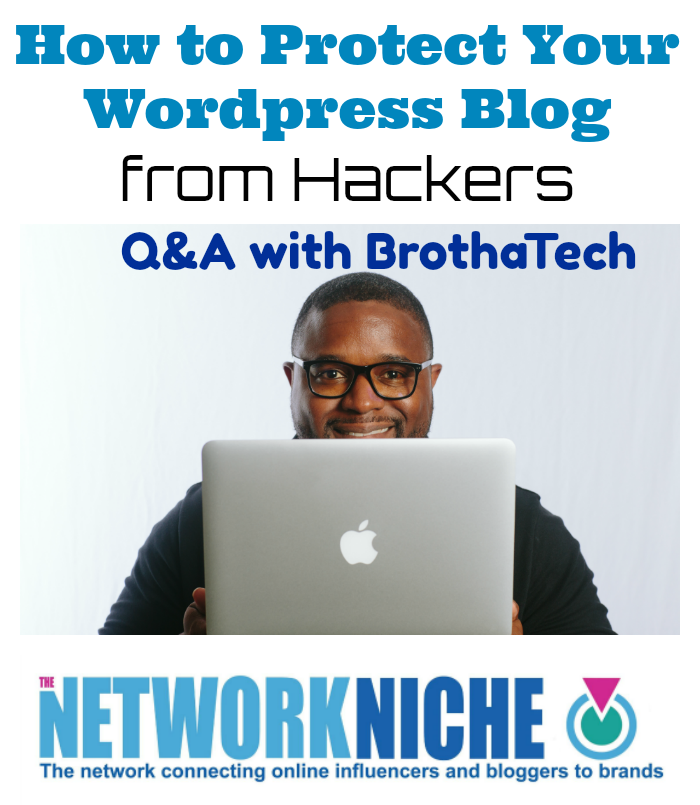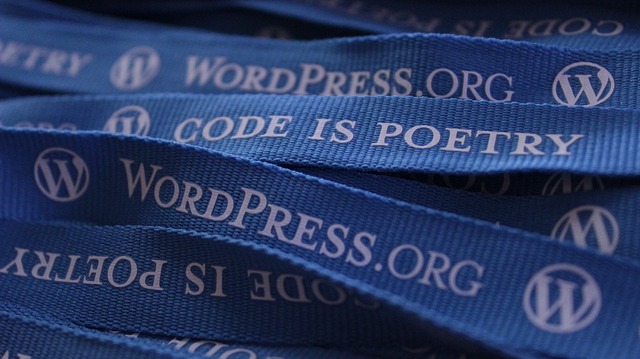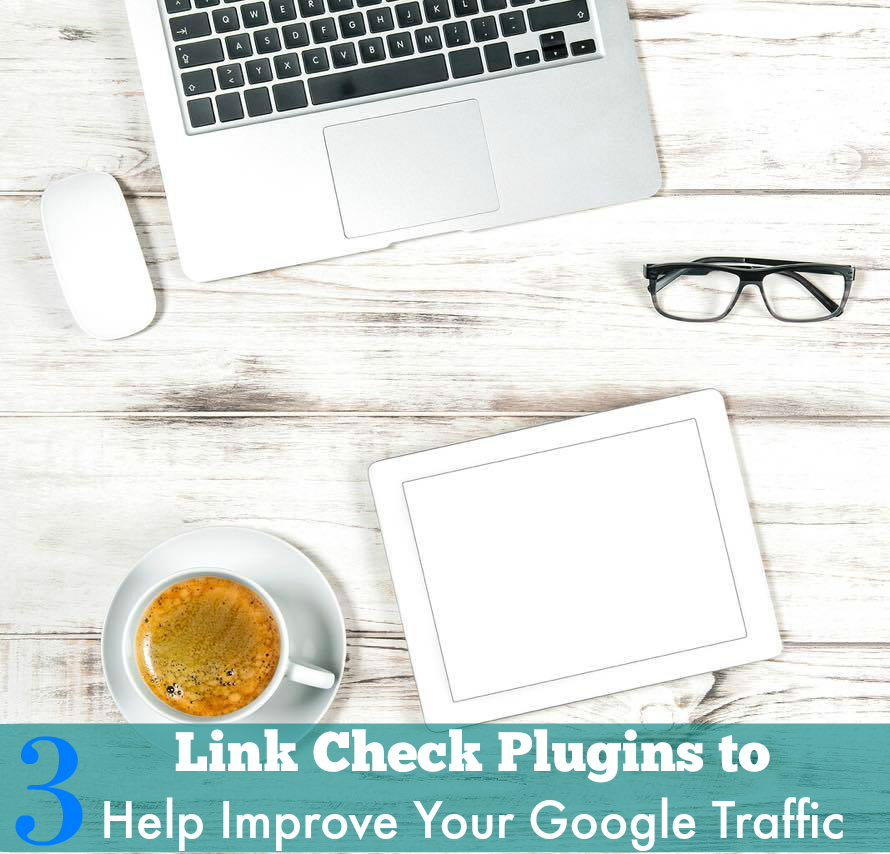There may come the day when your WordPress blog is hacked! You’ll know because your site doesn’t load or you can no longer login to edit your blog’s content. What can you do to protect your content, images and online presence? We asked our favorite tech pro, Terrance Gaines who’s known online as BrothaTech, how to protect a WordPress blog from hackers. Here’s a look at our insightful Q&A. You’ll want to pin this and share it in your favorite blogging groups!
1. Explain the importance of backing up the files on your WordPress blog. Is there a plugin or service you recommend?
It is important because your site is your property. If something goes wrong, you can’t just wait for somebody to fix it, or complain about it on social media. You have to do something about it. Backing up your site ensures you have a copy of your site’s contents in case something happens.
There are free plugins that can help you back up your site’s content, but you get what you pay for. The service I use is called CodeGuard because it backs up your site’s content and database, just in case you completely need to start from scratch if your site is compromised. You should also be able to pay an additional fee to your site’s hosting service to backup your site.
2. How can you tell if a WordPress blog has been hacked? If you find out that your blog has been hacked, what’s the first thing to do?
Your avid readers will let you know if your site is down. They will most likely see an error message that may say something like “be careful, this site contains malware.”.
In some cases, you may not even be able to log in to your site’s dashboard via the WordPress administration page.
The first thing you should do if you suspect that your site is hacked is to make sure you still have access to your site’s content via FTP (File Transfer Protocol). These credentials will be different than your administrative login credentials.
You will have to access your site’s content using applications like FileZilla. Your site host should have provided you with these credentials when you initially setup your site, so it behooves you to find these credentials and keep them in a secure place. Another option is to have to contract an external service like Sucuri.
3. Is a WordPress blog more/less likely to be hacked than other website platform for Squarespace?
With hacking, it’s a numbers game. For example, personal computers (PCs) are more likely to be hacked than Mac’s because more people use PCs. So the possibility of causing damage is greater. More people use WordPress than platforms like Squarespace, so the potential to hack a WordPress site is greater.
4. How important is choosing a good host for protecting your WordPress blog?
It depends. If you prefer to have everything (domain name registrar, site host, and site backup/security) under one roof so it’s easier to manage your site, then the quality of a good host is extremely important.
The problem with that is – everything this is under one roof. So if that service goes down, no matter how good it is, everything goes down with it. So there are some people who will just want a super-fast host, and entrust other site aspects to another service(s).
RELATED TOPIC: 3 Link Check Plugins to Help Improve Your Google Traffic
5. Aside from hosting and domain names, what are the expected costs for securing a WordPress blog?
On average, it will cost anywhere from $150-250/year for services like Sucuri to make sure your site is protected. Backup services like CodeGuard start at around $60-$100 per month for secure backups.
6. Did we miss anything on protecting a WordPress blog, files and photos?
Take your site’s health and security seriously – Your site is your digital “home” and if it were to disappear from the world-wide web, your ability to control and share your influence and/or even provide a living for your family is gone as well. So just assuming “That will never happen to me” is not a game you want to play when it comes to your home. Keep those plugins up to date (Ask me how I know).






No Comments